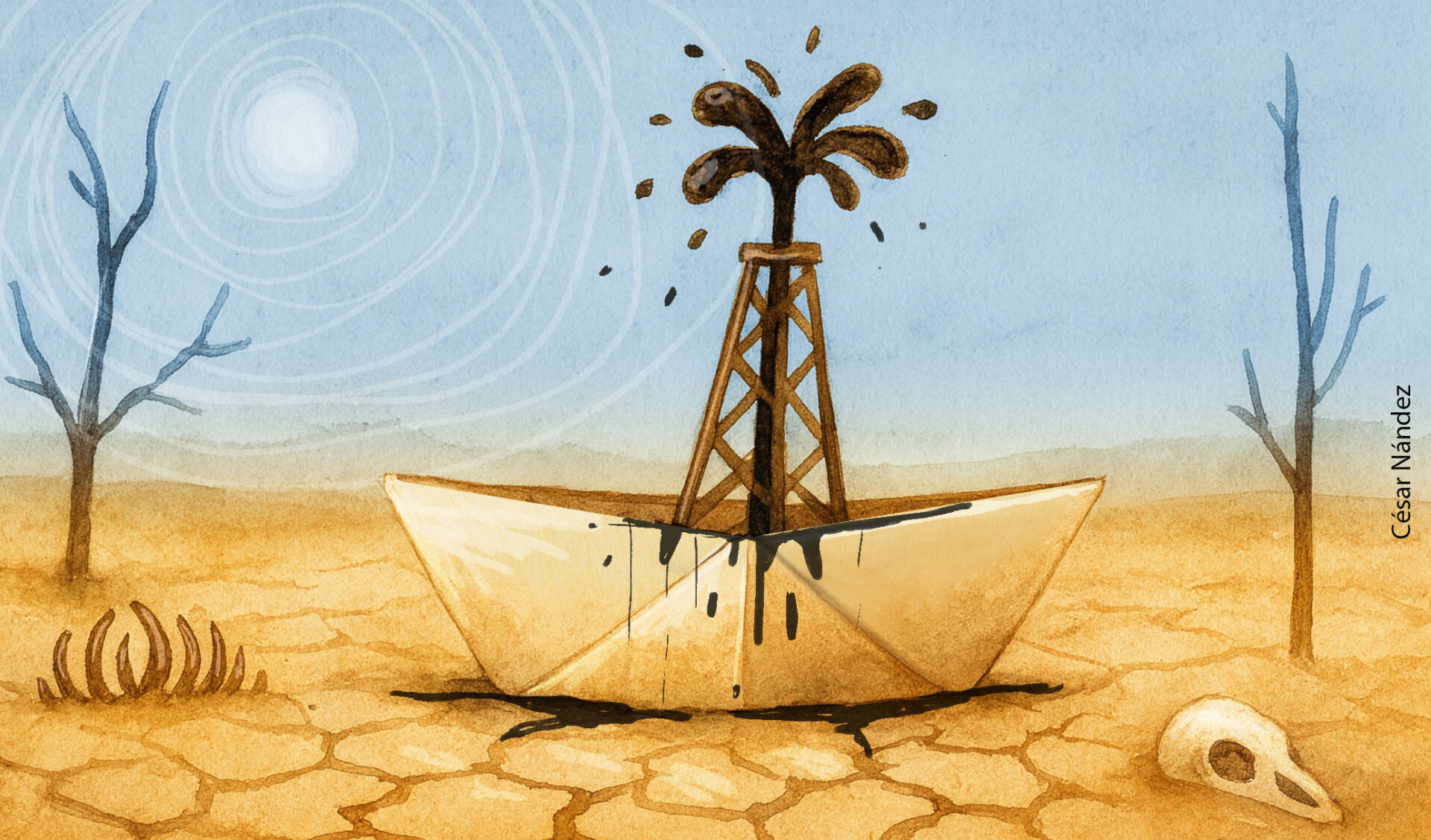In recent days, the true dimension of Donald Trump’s second term regarding the climate emergency has begun to emerge, with a denialist message that has become assertive, just as demanded by the oil industry lobby—one of his main campaign donors. Beyond reiterating his decision to withdraw from the Paris Agreement, the Republican government is advancing on other fronts, ultimately undermining the timid efforts initiated under Joe Biden’s administration.
We are faced with the reality that the main driver of the climate crisis not only denies the problem but is actively working to worsen it. Trump is not only altering regulations, dismantling agencies, or modifying laws domestically, but he also demands that the international community follow his lead. The U.S. government has begun pressuring World Bank member states to reinstate financing for oil projects in the developing world.
This proposal clashes with the recent trend among many development banks—including the World Bank, which stopped funding new exploration projects in 2023—to phase out fossil fuel financing, as well as with Janet Yellen’s push as Biden’s Treasury Secretary to boost funding for the green transition.
Despite these efforts, at a board meeting this past June, U.S. representatives in the World Bank supported financing for new gas projects. According to Trump’s team, this would benefit developing countries by boosting energy security, economic growth, and poverty reduction. Once again, fossil fuels are being framed as the only path to development. Yet, greater availability of funding for oil projects would not only disrupt transition efforts in these countries but also lock them into outdated technologies.
Within the Republican administration, Dan Katz—deputy to Scott Bessent at the Treasury—is being considered for the position left vacant at the International Monetary Fund (IMF) by Gita Gopinath’s return to Harvard. In recent years, the IMF has highlighted climate issues in research papers and staff reports. Many of these were led by Gopinath and emphasized the wide-ranging threats posed by climate change to economies and financial systems: climate risks (from delaying the transition) and financial risks (from accelerating it), with potential costs rising to unimaginable levels. In a recent speech, Bessent attacked what he called the IMF’s “ideological bias,” a direct critique of Gopinath’s work. These critiques will gain traction under U.S. policy shifts, while oil companies see their transition risks vanish—potentially indefinitely.
At the UN General Assembly, Trump railed against the European Union’s energy policies, claiming they led to “the death of the Western world”: “Renewables are a joke,” he declared. Yet renewables now generate the cheapest energy anywhere in the world, while battery prices keep falling. Despite this, Trump calls for a return to the past, pretending not to see where the future lies. As Al Gore recently argued, Trump is effectively “bullying” developing countries into abandoning their climate goals in exchange for trade favors. Even the EU is not immune to this pressure. During a recent visit, U.S. Energy Secretary Chris Wright warned that Europe’s climate policies and its “crusade” toward net-zero emissions by 2050 jeopardize any chance of a trade deal. Blackmail, in short, is spreading.
Far from reflecting strategic thinking, these moves reveal the influence of the oil lobby over U.S. policymaking. None of these threats can be framed as forward-looking: the real leadership of the future will come from green technologies, control over batteries, and positioning in the electric vehicle industry.
Meanwhile, China continues advancing its green industries, driving dramatic cost reductions and positioning itself as the world’s first true “electro-state.” Its leadership is highlighted in the annual State of the Transition report by Generation Investment Management, a think tank founded by former U.S. Vice President Al Gore and ex-Goldman Sachs executive David Blood. The report cites China’s growing share of the electric vehicle market as a prime example, noting how this reduces fossil fuel demand and increases financial risks for carbon-intensive firms, including U.S. automakers in Detroit. These advances are also benefiting other countries, which gain access to low-cost clean technologies and receive Chinese investment in green sectors, as seen in Brazil’s electric sector and BYD’s entry.
As the report stresses, while U.S. decisions remain influential, they no longer determine the fate of the planet. Most emissions now come from the developing world. The green transition is inevitable; the only questions are how long it will take and what position each country will hold when it arrives. Those who choose to follow Washington’s petroleum-centered directives will likely end up paying the price for such misguided decisions.
*Machine translation, proofread by Ricardo Aceves.












